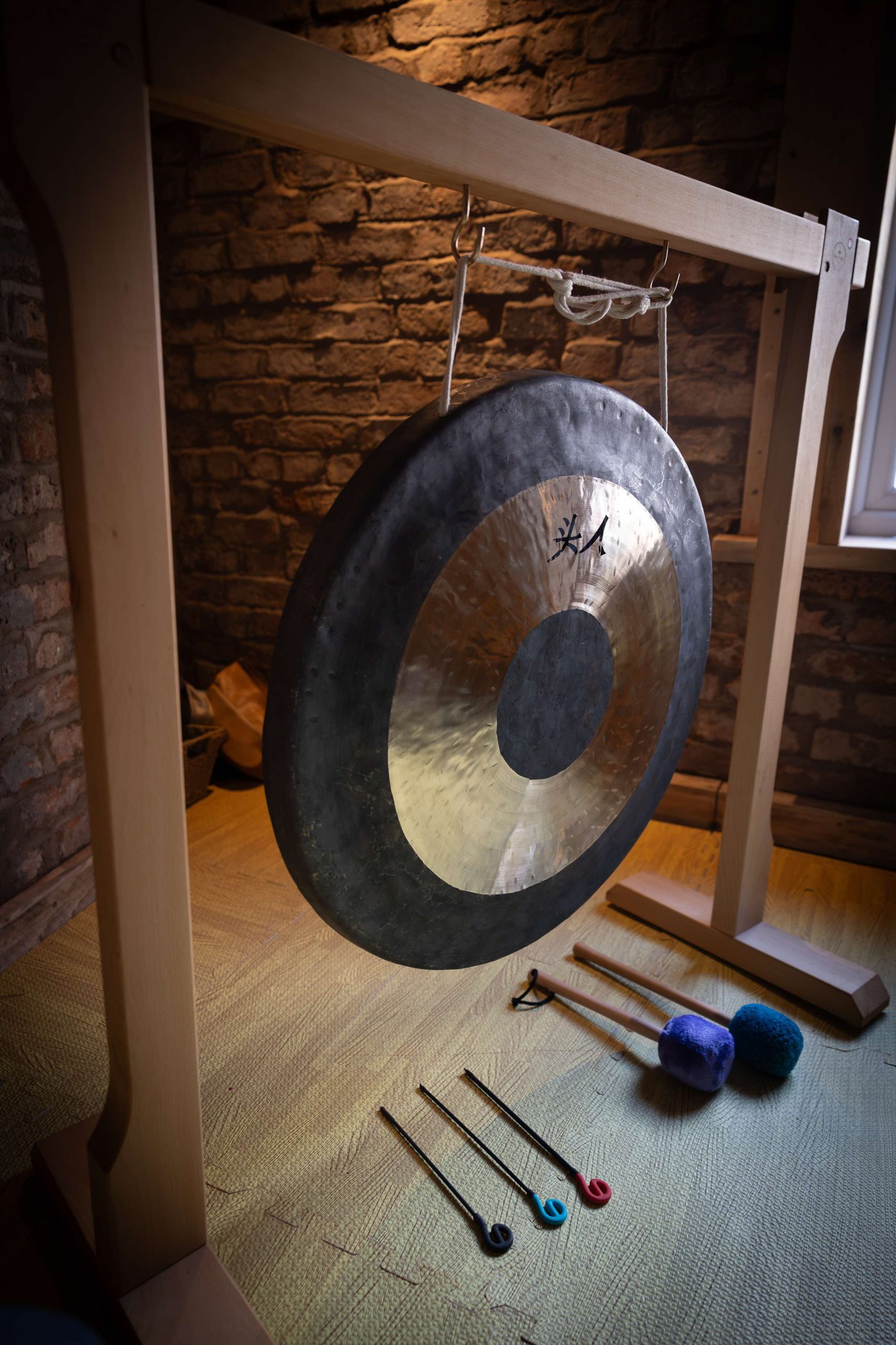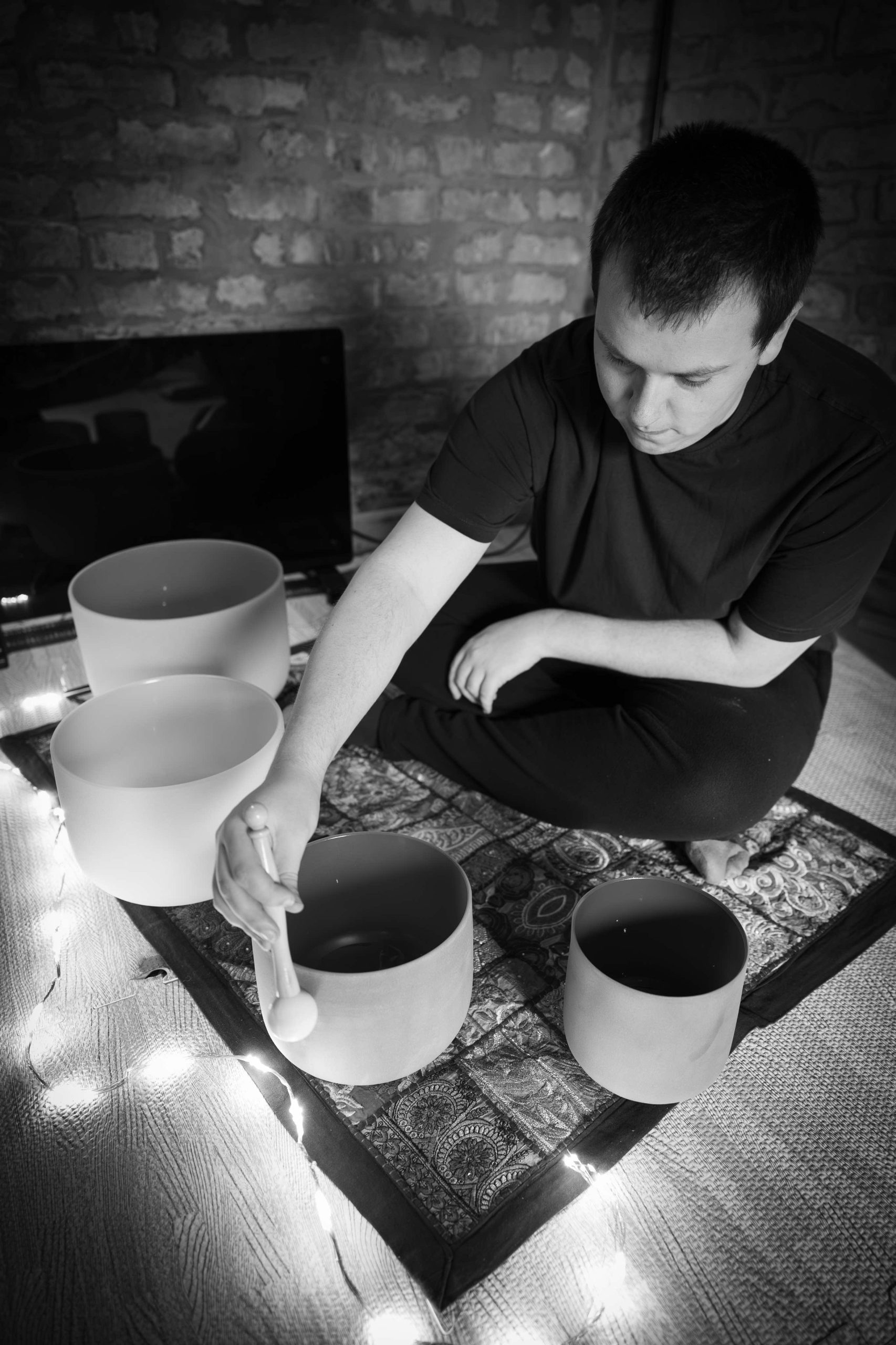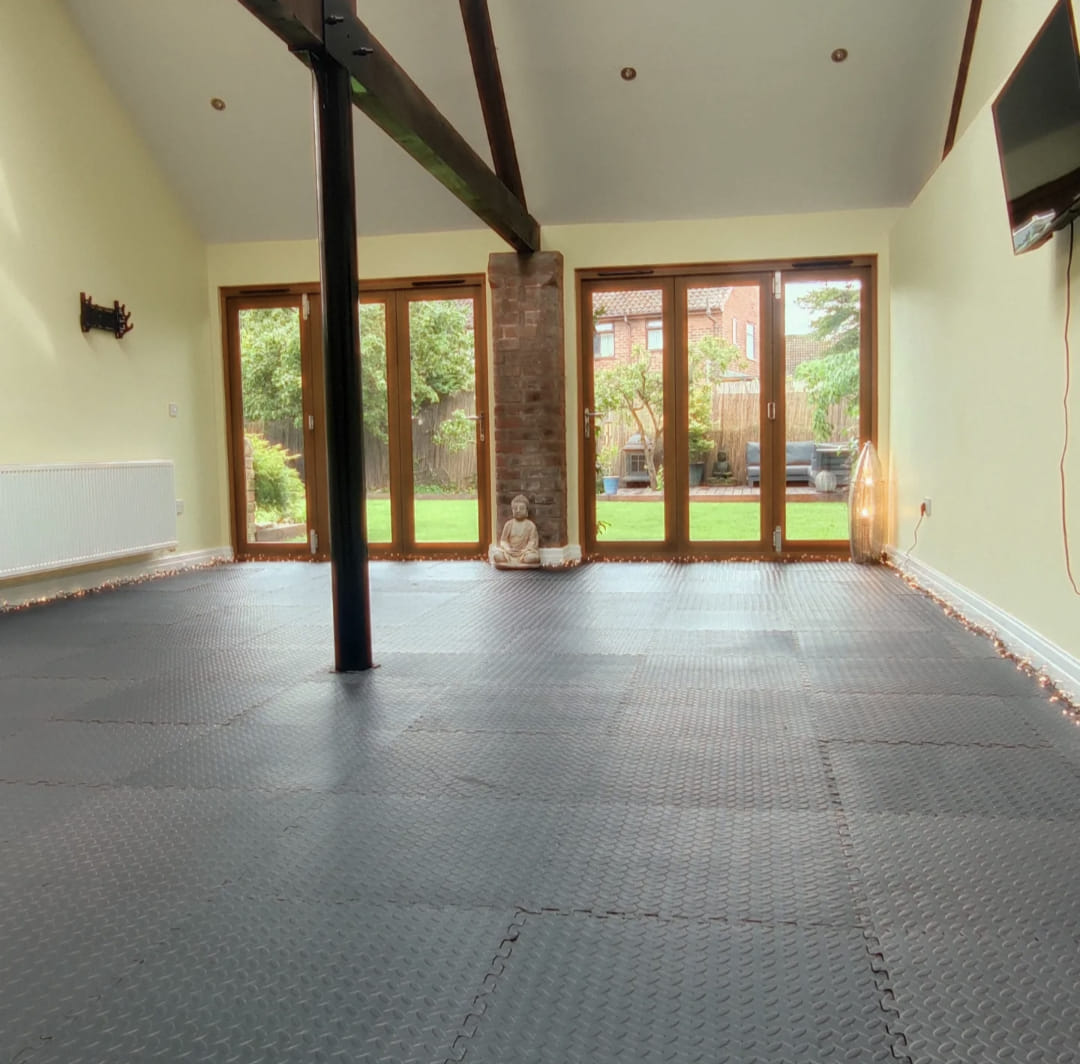
Gong Meditation Cheshire
Disclaimer Notice: Not recommended for people in their first trimester, or people who have a pacemaker fitted, or epilepsy.
What is gong meditation?
Gong meditation, also known as a gong bath, is a form of sound therapy that uses the vibrations and tones produced by gongs to promote deep relaxation, meditation, and healing. During a gong bath, participants typically lie down or sit comfortably while a practitioner plays the gong, creating an immersive sound experience.

What happens?
- Guided Relaxation and Breathing
- Playing Singing Bowls
- Playing the Gong
- Other Instruments
- The Effects
The session starts with guided relaxation, breathing exercises, or mindfulness techniques to help you to settle and become present in the moment, and in order to increase relaxation.
We will play the crystal singing bowls that produce soothing vibrations that promote relaxation and balance.
We play the gongs, producing a variety of tones and vibrations. The sound can be soft and gentle or deep and resonant, creating an immersive experience that helps clear the mind and induce relaxation.
We will also play Wah Wahs on ocean drum and Koshi chimes to start bringing you back to the space.
The vibrations are believed to affect the body and mind by reducing stress, lowering blood pressure, and promoting mental clarity. Many people report feeling deeply relaxed, rejuvenated, and even emotionally released after a gong meditation.
Benefits
There are many benefits to sound baths, we can’t say that it will treat anything, however, a gong bath can help with:
- Deep Relaxation
- Stress Reduction
- Improved Sleep
- Enhanced Focus and Clarity
- Emotional Release
- Pain Relief
- Balancing Chakras and Energy
- Increased Mindfulness
The benefits of sound baths mentioned above should not be considered as medical or scientific advice. Sound therapy is a complementary wellness practice and should not replace professional medical treatment or therapy for physical or mental health conditions. Results may vary from person to person, and individuals with serious health concerns are encouraged to consult a healthcare professional before participating in sound bath sessions.
Locations

Monks Cottage Sanctuary, Eastham
Every solstice or equinox we host a sound bath at Monks Cottage Sanctuary on Manor Road in Eastham, Wirral. See Eventbrite for our next event.
£12 per person
Book online through Eventbrite
Great Sutton Village Hall, Ellesmere Port
Once a month we host a sound bath at Great Sutton Village Hall in Ellesmere Port. See Eventbrite for our next event.
£11.55 per person
Book online through EventbriteFrequently Asked Questions
A sound bath is a meditative experience where participants are “bathed” in sound waves produced by various instruments like gongs, singing bowls, and chimes. The sounds are designed to promote deep relaxation and emotional well-being.
During a sound bath, you’ll typically lie down or sit comfortably while the practitioner plays instruments that produce soothing sounds and vibrations. Sessions can last anywhere from 30 minutes to an hour, and most people feel deeply relaxed or meditative afterward.
No, sound baths are accessible to everyone, regardless of meditation experience. The sounds naturally guide you into a relaxed or meditative state, making it an easy practice for beginners.
It’s a good idea to bring a yoga mat or blanket to lie on, a pillow for comfort, and a light blanket to stay warm. Some people also bring an eye mask to block out light and help with relaxation.
Many participants report benefits like reduced stress, improved sleep, mental clarity, and emotional balance. However, these benefits are subjective, and results can vary from person to person.
The frequency of sound bath sessions depends on individual needs and preferences. Some people attend weekly, while others may choose to go monthly or as needed. It’s best to listen to your own body and adjust accordingly.
Sound baths are generally safe for most people. However, if you have certain medical conditions, such as severe anxiety, epilepsy, or a pacemaker, it’s a good idea to consult with a healthcare professional before participating.
Falling asleep during a sound bath is perfectly fine and can be a sign that you are deeply relaxed. The sounds are designed to be soothing, so sleeping through part of the session will not diminish its benefits.
It’s helpful to arrive a few minutes early to settle in and find a comfortable spot. Wear comfortable clothing, stay hydrated, and avoid heavy meals right before the session.
After the session, take some time to reorient yourself. Drink plenty of water, and allow yourself to reflect on the experience. Many people find it helpful to journal or meditate briefly after a sound bath.